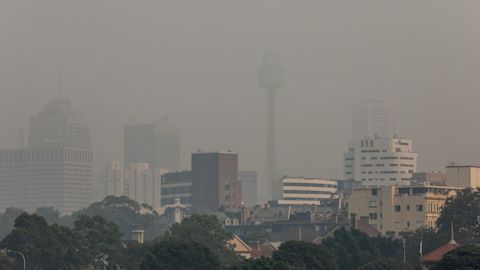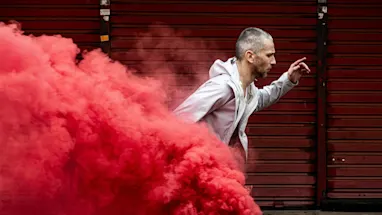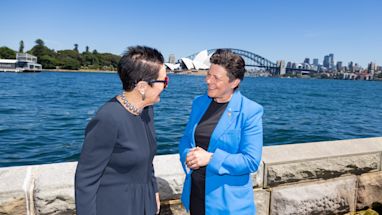Fires aren't just a regional occurrence – remember the severe Surry Hills building fire in 2023? Or the Black Summer bushfires?
Often smoke from preventative backburning measures and particle pollution from dust storms can travel quite far. The NSW Environment Protection Authority (EPA) advises that bushfire smoke as far away as Queensland, northern NSW and Victoria can impact air quality in Sydney.
“Generally, the most common causes of poor air quality in the City of Sydney are smoke from bushfires and hazard reduction burns as well as dust, often from local sources on windy days,” an EPA spokesperson said.
“With hot and dry summer weather comes increased risk of fine particle pollution from bushfires and dust storms, as well as ground-level pollution from the gas ozone.”
Poor air quality can affect everyone, especially people those with heart and lung conditions, older people, babies and young children.
“While the air quality in NSW is typically good by global standards, the 2019/20 Black Summer bushfires served as a reminder to communities that they should not take air quality for granted.”
It’s important that people know where to go to find the current air quality category for their region and any related health advice. On days when temperatures swelter beyond comfortable and fire risks are high, it can be handy to plan for what you can do if air quality becomes low.

How to plan for poor air quality
Check the air quality:
Use the NSW Government’s air quality index website; it’s like a weather forecast for air. It includes information on the air quality category from good to extremely poor, as well as health advice.
Sign up for daily SMS or email updates:
You can also subscribe to daily SMS or email updates with air quality ratings and forecasts for selected locations.
Make a plan with your doctor if required:
If you’re part of a sensitive group, chat to your doctor to create a plan before bad air quality hits.
Sensitive groups include those with a heart or lung condition, asthma, anyone over the age of 65, those who are pregnant or have diabetes. Follow your doctor’s advice about medicines and managing any health conditions and of course, contact your doctor if symptoms worsen.
See NSW Health for more information on knowing if you're at high risk from bushfire smoke.
What to do when air quality is low
Monitor air quality, your own health and follow NSW health messages.
Avoid strenuous outdoor activity.
Spend time in places with air-conditioning like cinemas, libraries, community centres and shopping centres.
Spend more time indoors. Shut doors and windows to help keep smoke out. Open doors and windows when the smoke clears.
Avoiding spending time around sources of indoor air pollution such as cigarettes, candles and incense.
See NSW Health for more advice about protecting yourself from bushfire smoke.
Think of your pets
If you can smell or feel the effects of smoke, it’s highly likely your pets can too.
Here are some quick tips from RSPCA NSW to keep your pets safe when the air is smoky:
- Keep them inside as much as possible with your windows shut.
- Ensure plenty of fresh water is always available.
- Avoid intense outdoor activities, like long walks.
- Have a plan in place for your pets in the event of immediate danger.
For help in an emergency
For emergency assistance in fires and bushfires call the NSW State Emergency Service (SES) on 132 500. If the situation is life threatening, immediately call triple zero (000).
If you need health or mental health support, there are services that can help. You can speak with your doctor to be connected to a service or contact:
- 24-hour HealthDirect helpline: 1800 022 222
- Lifeline: 13 11 14)
- 13 Yarn (13 92 76) for Aboriginal and Torres Strait Islander peoples
Published 5 January 2025, updated 7 January 2025



